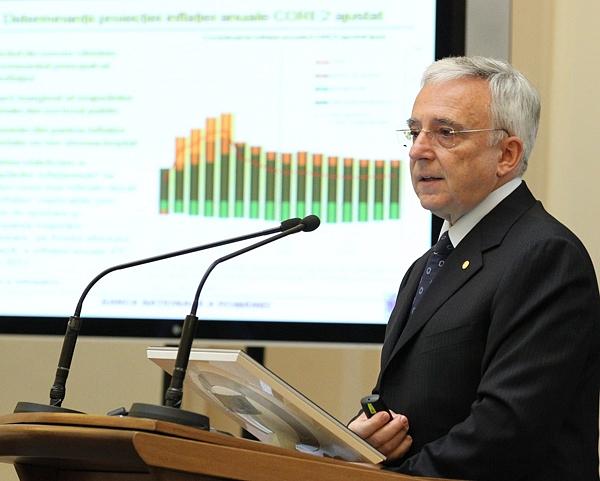BNR: external deficit is main systemic risk for Romania’s financial stability

The main systemic risk Romania’s financial system has to face in the coming period is the external deficit, particularly because Romania stands out in the region in this regard, Romania’s National Bank (BNR) governor Mugur Isarescu stressed when introducing the first Financial Stability Report on June 5.
While Romania had a current account deficit of 4.5% of GDP in 2018, the Czech Republic and Hungary had current account surpluses, and Poland had a low current account deficit, Isarescu explained.
Romania’s economy soared by 5.6% per annum over the past three years, compared to the 2.1% average annual rise in the European Union, a growth “rather associated with” consumption than investments, which puts pressure on imports, Isarescu said.
“In three years we have rushed to waste what we had previously achieved,” he explained.
Speaking of the second systemic risk, related to legislative instability, Isarescu called into question the adoption of the emergency ordinance (OUG) 114 without prior consultation with the BNR and negotiations with the banking industry, and without informing the European Central Bank as required by the EU Treaty.
editor@romania-insider.com
(Photo source: Bnr.ro)
















